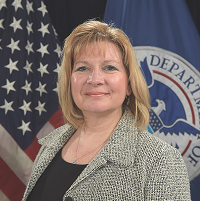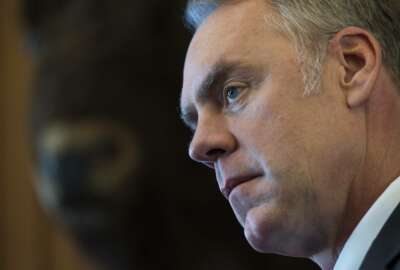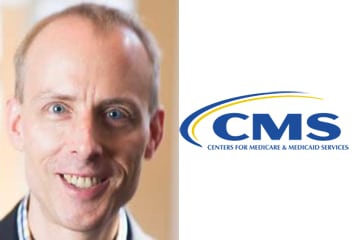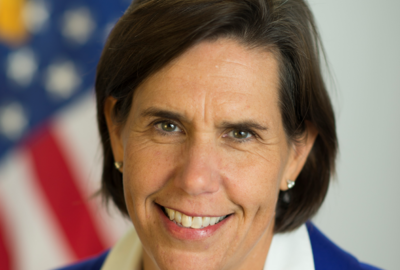
When CMS comes out of hiding, there’s plenty of progress to see
Jennie Main, the CMS chief operating officer, and Rajiv Uppal, the CMS CIO, in separate panels detailed how the agency is retraining employees and focusing more on...
The Centers for Medicare and Medicaid Services is one of those “shy” agencies. It seems like the folks at the Baltimore headquarters don’t like to make public appearances at events and subscribe to the theory, “no news is no news.”
But when CMS executives make their way to the Washington, D.C., area for assorted conferences they bring a plethora of good news and progress.
Over the past few months, CMS officials have come out of hibernation at a couple of events, most recently at the AFCEA Bethesda Health IT day and before that at the National Contract Management Association’s Government Contract Management Symposium, to highlight more than talking points, but actual progress in changing the agency.
At the AFCEA event, Rajiv Uppal, the CMS chief information officer, detailed the work the agency is doing to move more toward meeting customer expectations.
Agile and the product mindset
He said CMS does a lot of its software development and most of those teams now are using the agile methodology and “taking on the product mindset” that is focused more on outcomes that meet customer needs.
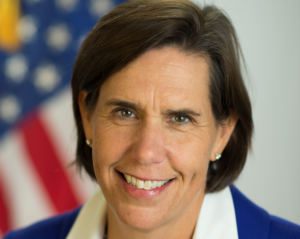
Uppal said IT modernization, cybersecurity and, maybe most importantly, CMS employee upskilling are among his big priorities.
Uppal’s office’s work to get systems and networks in better shape isn’t happening just because CMS is filled with legacy systems. It’s happening, in part, because CMS executives outside of IT are realizing just how valuable the agency’s data is to their decision making.
Jennie Main, the chief operating officer at CMS, said whether it’s contracting or technology or mission, the sharing of data is helping the agency break out of long-time siloes where offices focused mainly on the work in front of them and not the agency’s mission holistically.
“I think it starts from the top by sending a message that we will work together and do the hard stuff. We are going to get people in a room together and look at both sides of an issue,” Main said during an interview at the NCMA event in December. “A lot of it comes from mindset and really coming from a place of what I call ‘non-judgmental curiosity’ If you assume the person on the other side of the table is actually just trying to do their job and you go and sit in their shoes for a little bit and find out what they are doing and what they see, it’s just remarkable how many people come back and say, ‘oh my gosh, I never knew that they needed these things.’”
Main said one way to do this is by opening up opportunities for employees to work in another mission or administrative functional area for a short amount of time. For example, the contracting office sent a group of folks on a detail to mission areas to see what it’s like to be the customer.
Main said it’s about taking a little risk for a big benefit.
Related Stories
This is a culture change not just for CMS, but for most agencies. The Trump and Obama administrations have promoted the concept of moving members of the Senior Executive Service to different jobs, but only the ones that seem like punishment get public attention.
What CMS is doing, and whether or not it’s members of the SES or the general schedule doesn’t really matter, is trying to create a customer-centric organization.
Main said the workforce is interested in making better use of the CMS’s data to answer customer or mission questions.
“If you don’t have the data in your current wheelhouse, but you need it to answer a question you really care about, then you need to figure out how to get the data,” she said. “One of our questions is about hiring and how long it takes us to hire. But everyone will say I don’t want to quickly hire the wrong person and I’m willing to wait a few months to hire the right person. We don’t have data for that and we have to find a way to create that data.”
Main said CMS is using a Gartner system that surveys hiring managers after they’ve brought in a new employee to benchmark the hiring process.
Taking smart risks
Another example is how Main is bringing together all the CXO leaders to address systemic pain points as a group.
“Most functioning organizations can solve things in their own silo, if you will, but it’s when you have stuff that has to cross it that it becomes more challenging,” she said. “We have been actively working together as a leadership team to identify things that will solve multiple groups of problems.”
She said CMS spends almost $2.7 billion on technology so there is a green field of opportunity to save money through consolidation and better contract management.
All of these changes come down to understanding and accepting the risk of the culture changes.
“One of the challenges in the federal space is there is so much risk aversion just culturally from top to bottom,” Main said. “So you put someone like me, who is not risk-averse and I like to think about myself at least as a responsible risk manager, it makes a big difference. What are we aiming for? Are we at the lowest common denominator to avoid anything bad anything or are we lifting our eyes up 45 degrees and take a look around? That is where we all need to be seeing as part of the bigger picture.”
Main said one example of a recent risk she took the lead on was notifying a subset of beneficiaries about something happening with their account even though the general counsel’s office said they shouldn’t do it.
“The team wanted to send the notice and I said ‘I would be the senior official who signed off on this,’” she said. “That’s the kind of thing where you have to smart about it and have good judgement. If you just live in a world where you are constantly afraid of what might happen … I try to step back and say ‘is this the right outcome?’ If I feel comfortable with it, then I’ll go ahead and do it.”
These types of examples from Main and Uppal give credence and hope for how CMS is changing for the better. There probably are dozens of other mission and back office areas where CMS employees are saving money, serving citizens better and fulfilling the reason why they joined the government in the first place. Now if only others in CMS leadership saw the value of celebrating their successes.
Copyright © 2025 Federal News Network. All rights reserved. This website is not intended for users located within the European Economic Area.
Jason Miller is executive editor of Federal News Network and directs news coverage on the people, policy and programs of the federal government.
Follow @jmillerWFED


